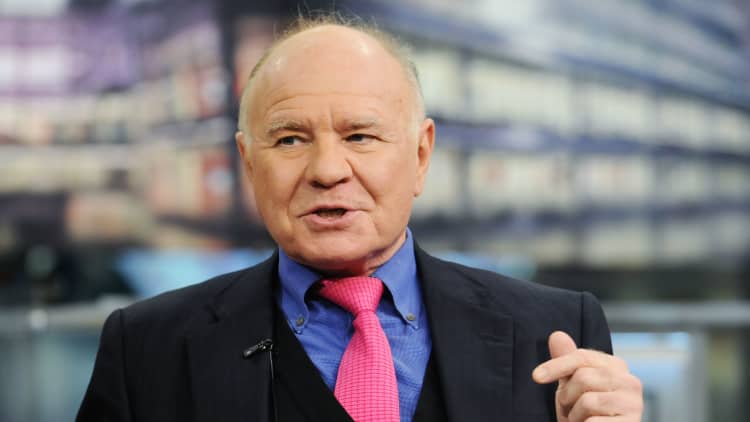Hedge fund pioneer Julian Robertson has bad news for those who fear bubbles: There are at least two brewing in the markets now.
The Tiger Management founder believes that even though "the economy is getting better," there are dangers brewing beneath the surface.
"The first bubble is that bonds are at ridiculous levels, so that the saver, the small charity, has no place to put his money except into stocks," Robertson said at the Bloomberg Markets Most Influential Summit. "I think that situation is serious on that score. Nobody seems to be concerned about that.

"It's a worldwide phenomenon that governments are buying bonds to keep their countries moving along economically. I don't know when (bursting of the bubbles is) going to happen, but I think it will happen in a very bad way."
Read MoreThe market's next Fed fear: The exit strategy
William Conway, co-founder and co-CEO of The Carlyle Group, didn't disagree with Robertson about the bubble situation, but said he doesn't think it's an imminent danger.
"I do not see the catalyst that is going to make the bubble burst," he said. Conway said he sees investment opportunity in China.
Despite his views on a dual stocks-bonds bubble, Robertson said he also still sees opportunities.
"One has to be careful, and there are still some great companies around," he said. In particular, Robertson called e-commerce site Alibaba, which held the biggest-ever initial public offering Friday, "a fabulous company."
Reflecting on the hedge fund industry, Robertson said the business is a lot tougher than when he started.
Read More
"It's definitely much harder to run a hedge fund today than it used to be in my opinion," he said. "That's because there are more hedge funds to compete with. We had a field day before anyone knew anything about shorting. It was almost a license to steal. Nowadays it's a license to get hosed."
Conway said the same thing goes for private equity.
"We used to make a lot of money on the first day," he said. "Right away we knew the businesses we bought were worth a lot more than we were paying for them."






